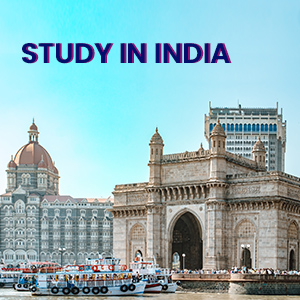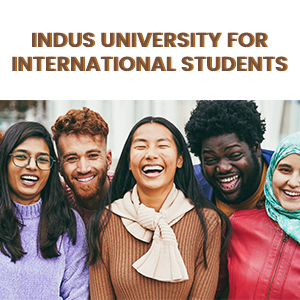Announcement
Get Ready for INDUS CUP 2K26! | Dates: 5–10 January 2026 | Stand a Chance to Win Cash Prizes up to ₹10,00,000!...Read more Get Ready for INDUS CUP 2K26! | Dates: 5–10 January 2026 | Stand a Chance to Win Cash Prizes up to ₹10,00,000!
We are excited to announce the Indus Hackathon 2025, an exhilarating one-day event organized by the CSE Department of Indus University....Read more We are excited to announce the Indus Hackathon 2025, an exhilarating one-day event organized by the CSE Department of Indus University.
26th ISTE Faculty Annual State Convention will be held at Indus University on April 27, 2023....Read more 26th ISTE Faculty Annual State Convention will be held at Indus University on April 27, 2023.
Get Ready for INDUS CUP 2K26! | Dates: 5–10 January 2026 | Stand a Chance to Win Cash Prizes up to ₹10,00,000!...Read more Get Ready for INDUS CUP 2K26! | Dates: 5–10 January 2026 | Stand a Chance to Win Cash Prizes up to ₹10,00,000!
We are excited to announce the Indus Hackathon 2025, an exhilarating one-day event organized by the CSE Department of Indus University....Read more We are excited to announce the Indus Hackathon 2025, an exhilarating one-day event organized by the CSE Department of Indus University.
26th ISTE Faculty Annual State Convention will be held at Indus University on April 27, 2023....Read more 26th ISTE Faculty Annual State Convention will be held at Indus University on April 27, 2023.

A variety of international students have a lot of options, but studying in India is a great decision. It is one of the nations growing the fastest in the globe, and its technology infrastructure is booming quickly. There are many start-ups to pick from, and employment opportunities in India's technology sector have increased recently. Indian higher education is expanding quickly for international students. There are currently more than a thousand approved educational institutes in India. Globally, just about fifty of these are well-known. All institutions are accredited & ranked by the National Institute Ranking Framework.
The thing that India is a developing nation is what makes it such an intriguing location for studying abroad. Even though India is a developing nation with a lot of poverty and social problems, significant technological advancements are achieved every day. India's middle class is expanding, and its poverty, illiteracy and infant mortality rates are dropping as the country gets wealthier and more powerful. Life expectancy is likewise increasing quickly.


India has the second-highest population after China, one of the largest nations on earth. Here, there are many chances for technical and engineering-focused education, while other fields are catching up in terms of pace and course selection. Choosing a subject or stream is simple for individuals wishing to study abroad in India. However, there are many other things to consider if you decide to finish your further education in India. It's vital to be prepared before moving to a new nation, whether you're heading abroad to study in India or anywhere else. Here is a useful set of advice to keep in mind:
To study in India, you need a visa unless you are a citizen of Bhutan or Nepal. Suppose you have Overseas Citizens of India status or a Person of Indian Origin card, which confer many of the same rights and advantages as full citizenship. In that case, you are also exempt from needing a visa. Fortunately, India makes the entire procedure as simple and straightforward as it possibly can be for everyone else.
The first need is to have official proof of your acceptance to a school in India. This is typically offered in both Hindi and English in schools. It is advised that you use the English version for this programme. The training programme must last at least six months. You must also show how, without working in India, you would have access to sufficient money to support yourself.
You only begin to appreciate the value of communication when you are separated from your loved ones. When you initially arrive, you can use a cafe's Wi-Fi or an international SIM card, but none of these are affordable or useful choices. Obtaining a local SIM card is one of the first things you must do when you arrive. Ask for advice at the international students' assistance desk on campus if you're unclear about what's best.
Advantages of buying an Indian SIM card:
The majority of the nation leans toward conservatism, whether it is in terms of public behaviour or appearance. Some behaviours, foods, or apparel may be culturally insensitive. Most people you'll meet at your university will be fluent in English, but Hindi is considerably more widely spoken outside of the academic community. You could learn a little Hindi if you'd like; it would be quite helpful when you arrive. When planning to study abroad in India, you should bear some of these cultural considerations in mind. One benefit of studying or working abroad is the opportunity to interact with and learn from people from other backgrounds and cultures. You will meet people more quickly and have a better experience overseas if you participate in events and get to know them beforehand.
Indian cuisine is renowned for its broad range of flavours, from spicily tangy and delicately sweet. It's generally a good idea to gradually allow your palate to get used to Indian food. Additionally, a range of cuisines, including Italian, Thai, Chinese, Lebanese, etc., are readily available here. Always be careful to let us know if you have any food allergies or preferences. Additionally, you may use Indian delivery apps like Zomato, Swiggy, etc., to order meals to be delivered to your home or hostel.
You might spend more or less than the quotes, depending on your way of life. Thus they should only be used as an average. If you're attempting to save money, creating an intelligent budget and looking into the best options for accommodation, groceries, and commuting can help a lot. Some programmes provide grants and scholarships, particularly for students from other countries. You can also apply for loans or grants from the government. In addition, you can also take out a loan from your home country to pay for your education or combine working and studying. If you're placing an application for a PhD degree, look into fellowships that can give you money to cover your fees.
The academic experience at Indus University is enjoyable and gratifying for all students. Work, play, and free time are all equally balanced in students' daily routines. Curriculum and teaching methods have been developed explicitly for overseas students in order to make the teaching-learning process interesting and enjoyable. Case studies, project-based learning, problem-based learning, and choosing optional subjects that the learner is interested in all result in sincere and engaging learning. Initiatives like the Induction Program, the Mentor-Mentee system, and the close interaction between students and teachers ensure that international students are always prepared and motivated to learn.
To keep college students motivated and to foster their creativity throughout the year, the implementation of technical, sports, and cultural events at the departmental, intra-institutional, and inter-institutional levels has been established. Creating an annual calendar of events, empowering student governments to organise activities, and establishing a system of rewards through constructive competitions all enhance campus life.
